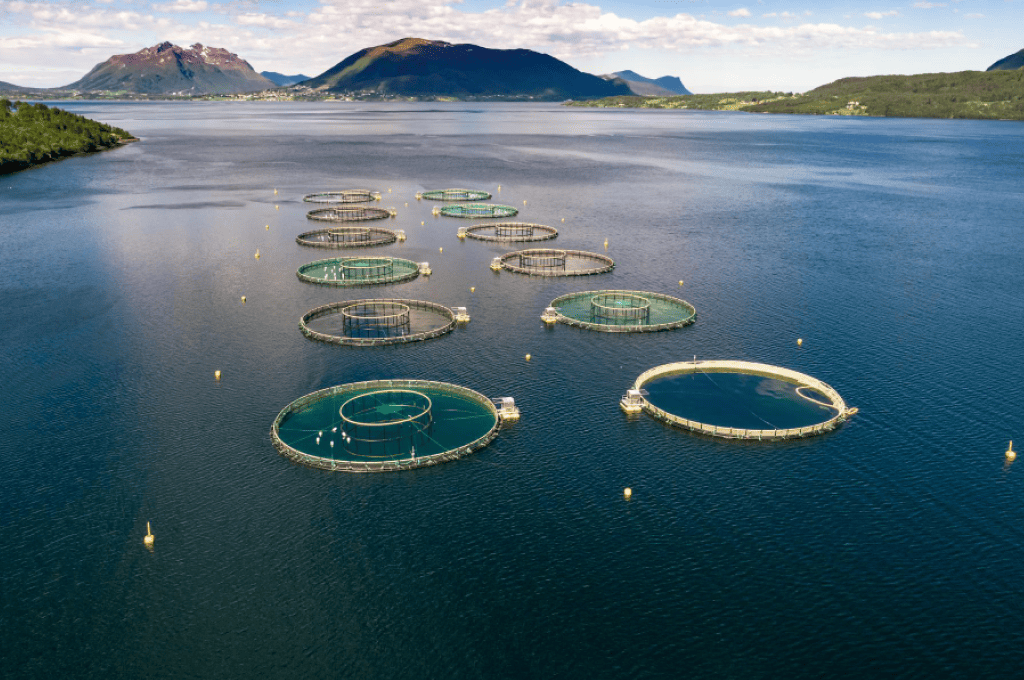
Product walkthrough, trial, POCs, enterprise offering, support and more. Speak with one of our specialists.


Product walkthrough, trial, POCs, enterprise offering, support and more. Speak with one of our specialists.

Sustainable living

The ocean is no longer seen merely as a natural resource to be exploited, but as a strategic asset that must be managed sustainably. In the midst of the climate crisis, declining marine biodiversity, and global economic challenges, the Blue Economy approach offers a solution that views the ocean as an integral part of sustainable development. This concept invites us to see marine ecosystems not only from an ecological perspective but also as a driver of inclusive, innovative, and crisis-resilient economic growth in the future.
The Blue Economy is a development approach that utilizes ocean resources sustainably. This means that economic activities such as fisheries, marine tourism, ocean energy, maritime transport, and marine biotechnology are carried out with consideration for environmental capacity to avoid damage. In practice, the Blue Economy rejects overexploitation and promotes innovations that support conservation.
While conventional ocean economies often focus on short-term profits, the Blue Economy emphasizes the importance of maintaining ocean health as the main pillar of life. In the long run, a healthy ocean can deliver more stable and sustainable economic returns.
As the world’s largest archipelago, Indonesia has more than 17,000 islands and seas covering 70% of its total territory[Ref]. This potential is extraordinary. Indonesia’s seas harbor one of the richest marine biodiversities in the world. In addition, Indonesia has the second-longest coastline in the world, which could be a huge economic resource if managed properly.
However, this potential has not been fully utilized. Most coastal communities still live in poverty[Ref]. Income from fisheries is often unstable, marine tourism is concentrated in a few areas, and ocean energy technology is still very limited. The Blue Economy offers a solution to manage this potential wisely and sustainably.
Our oceans face serious threats. Overfishing has led to a drastic decline in fish populations. Many marine species are endangered because they are not given enough time to reproduce naturally. Destructive fishing practices, such as using bombs or trawl nets, further damage underwater habitats.
In addition, marine pollution is worsening. Plastic waste from land enters the ocean and contaminates the entire marine food chain. Microplastics are now found in fish and even in table salt[Ref]. Climate change further worsens conditions: rising ocean temperatures damage coral reefs, while rising sea levels threaten small islands and coastal communities.
Many of these problems arise from an economic approach that does not account for environmental carrying capacity. This is why the transition to the Blue Economy is so important.
The Blue Economy is not just a buzzword. It offers concrete approaches to tackling the ocean crisis while creating new economic opportunities. In fisheries, for example, the Blue Economy promotes sustainable fishing practices, including catch quotas, conservation zones, and eco-friendly fishing gear. Fishermen are encouraged to catch only what the ecosystem can handle.
In the energy sector, the Blue Economy opens opportunities for developing ocean current, wave, and tidal energy. These energy sources have a low carbon footprint since they do not burn fossil fuels. Energy is harnessed directly from the natural movement of seawater, keeping greenhouse gas emissions minimal.
Marine tourism can also be steered toward more eco-friendly models. Ecotourism focuses not only on the beauty of the sea but also on educating visitors about environmental protection. This type of sustainable tourism can create new jobs in services, guiding, coral reef conservation, and environmental education.
Equally important, the Blue Economy includes innovations in aquaculture. Responsible farming of fish, seaweed, and shellfish can serve as an alternative to wild capture, but must be managed to avoid water pollution and habitat destruction [Ref].
With the Blue Economy, coastal communities can gain fairer and more sustainable economic benefits. Fishermen enjoy more stable incomes thanks to preserved fish stocks. New jobs emerge in ecotourism, marine energy, and conservation. Coastal regions that were once neglected can grow into local economic hubs.
In addition, the Blue Economy contributes to national food security. Healthy oceans can ensure the availability of protein from fish and other marine products. In the long term, this can reduce dependence on food imports and strengthen the nation’s self-sufficiency.
Equally important, investment in the Blue Economy encourages research and technology. Universities, startups, and industry players are driven to create innovations in ocean mapping, smart aquaculture technology, and satellite-based marine ecosystem monitoring systems.
None of this will work without strong policy support. The government plays a key role in regulating ocean governance, setting exclusive economic zones, providing incentives for innovation, and ensuring protection for indigenous coastal communities.
The Blue Economy must be part of the national development plan. In Indonesia, some initiatives have emerged, such as the creation of marine protected areas, support for small-scale fisheries, and international cooperation in ocean management[Ref]. However, implementation still faces major challenges, including lack of data, overlapping regulations, and poor cross-sector coordination[Ref].
Collaboration between government, the private sector, NGOs, and civil society is essential. Only through multi-stakeholder cooperation can the Blue Economy be successfully implemented. This includes educating the public on the importance of ocean conservation, providing support to fishermen, and involving local communities in all planning stages.
The ocean is not just a place to catch fish. It is a provider of oxygen, a climate regulator, and a life-support system. If we continue to neglect it, the consequences will be vast—not just for fishermen, but for all of humanity.
The Blue Economy is the key to unlocking a better future. By combining economic and ecological values, we can create a fair, balanced, and sustainable system. A healthy ocean will produce a strong economy, and a wise economy will keep the ocean healthy.






















Jejakin’s green programs combine high-tech monitoring, biodiversity restoration, and community-led initiatives to deliver powerful, sustainable change across ecosystems.








